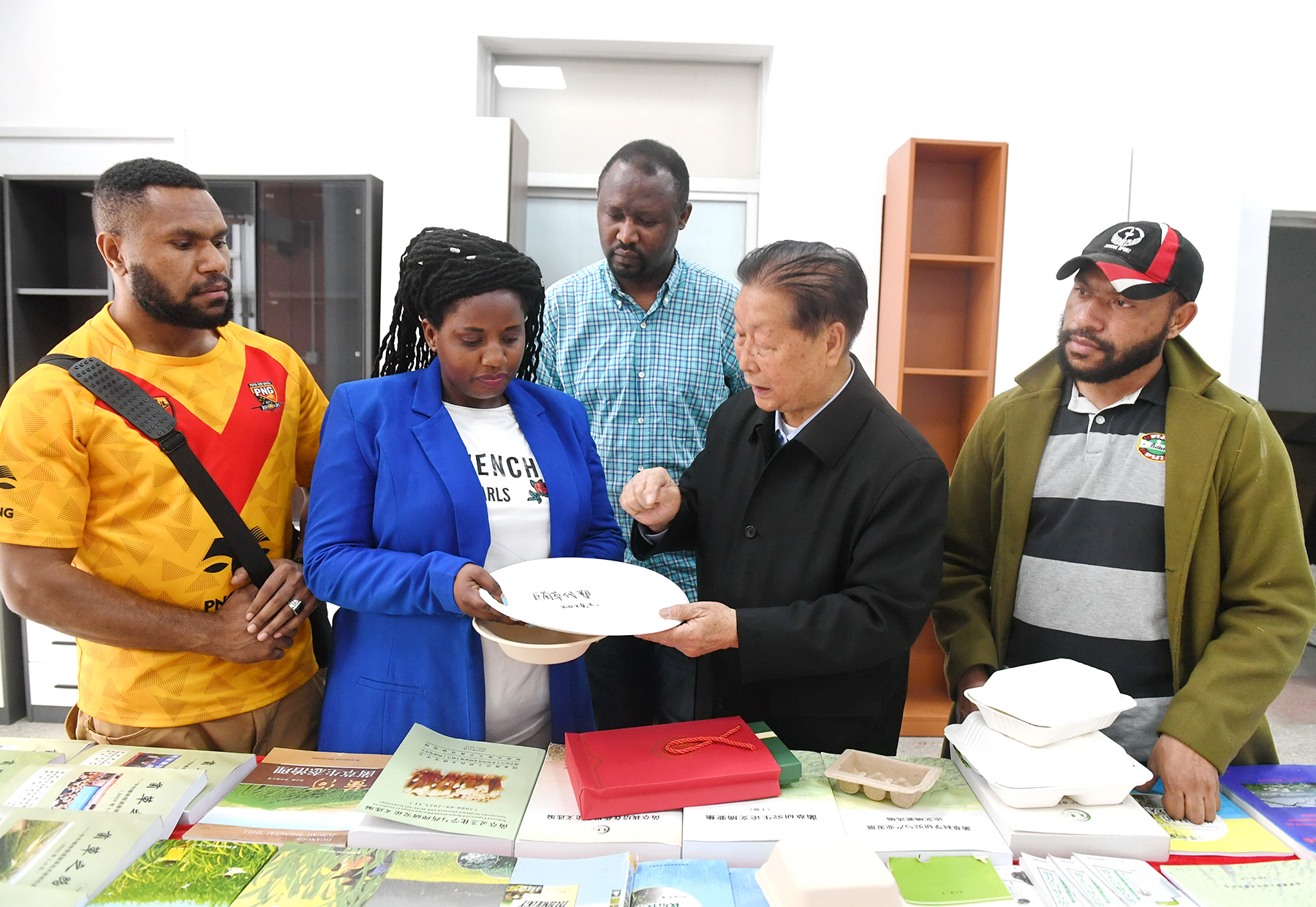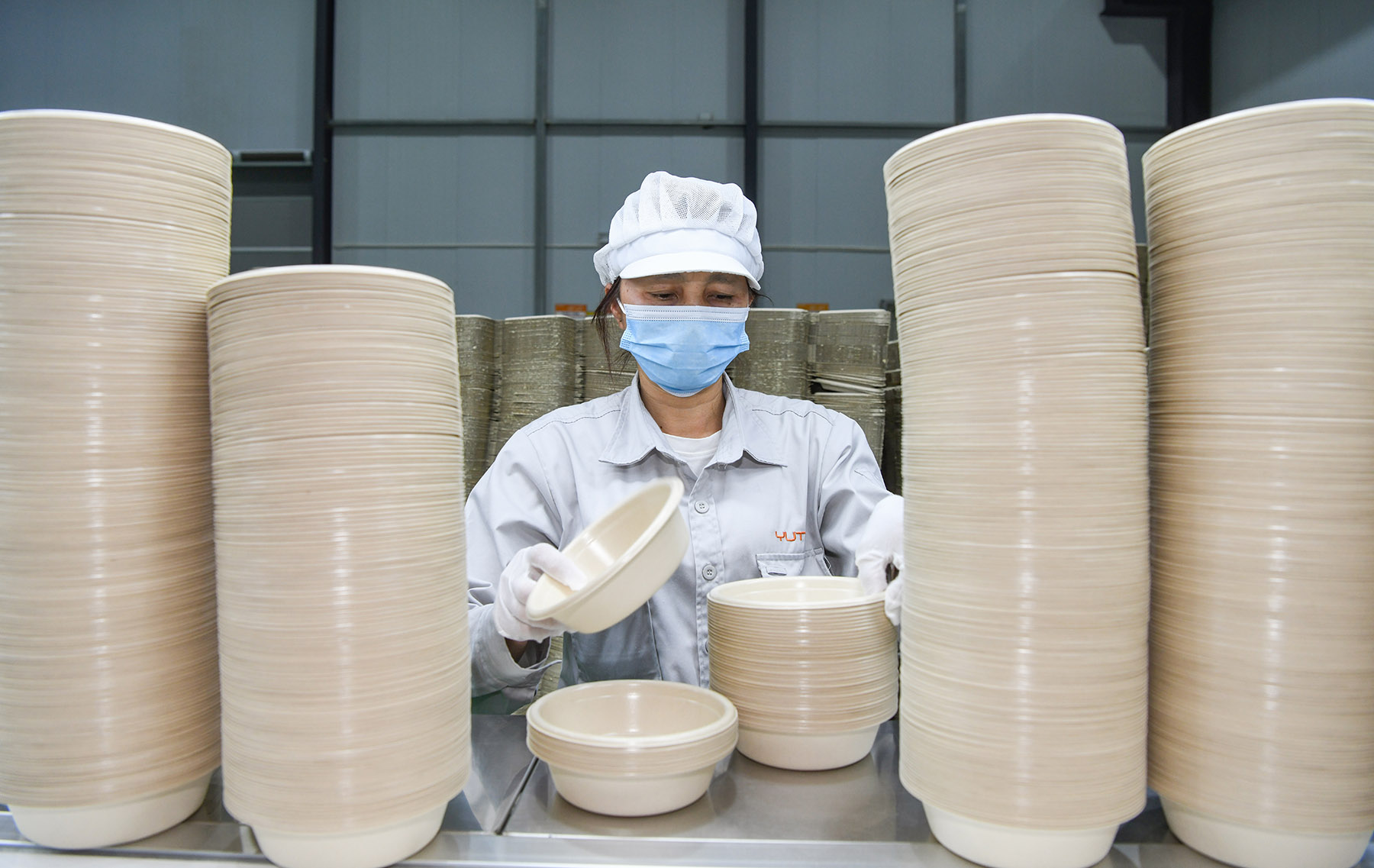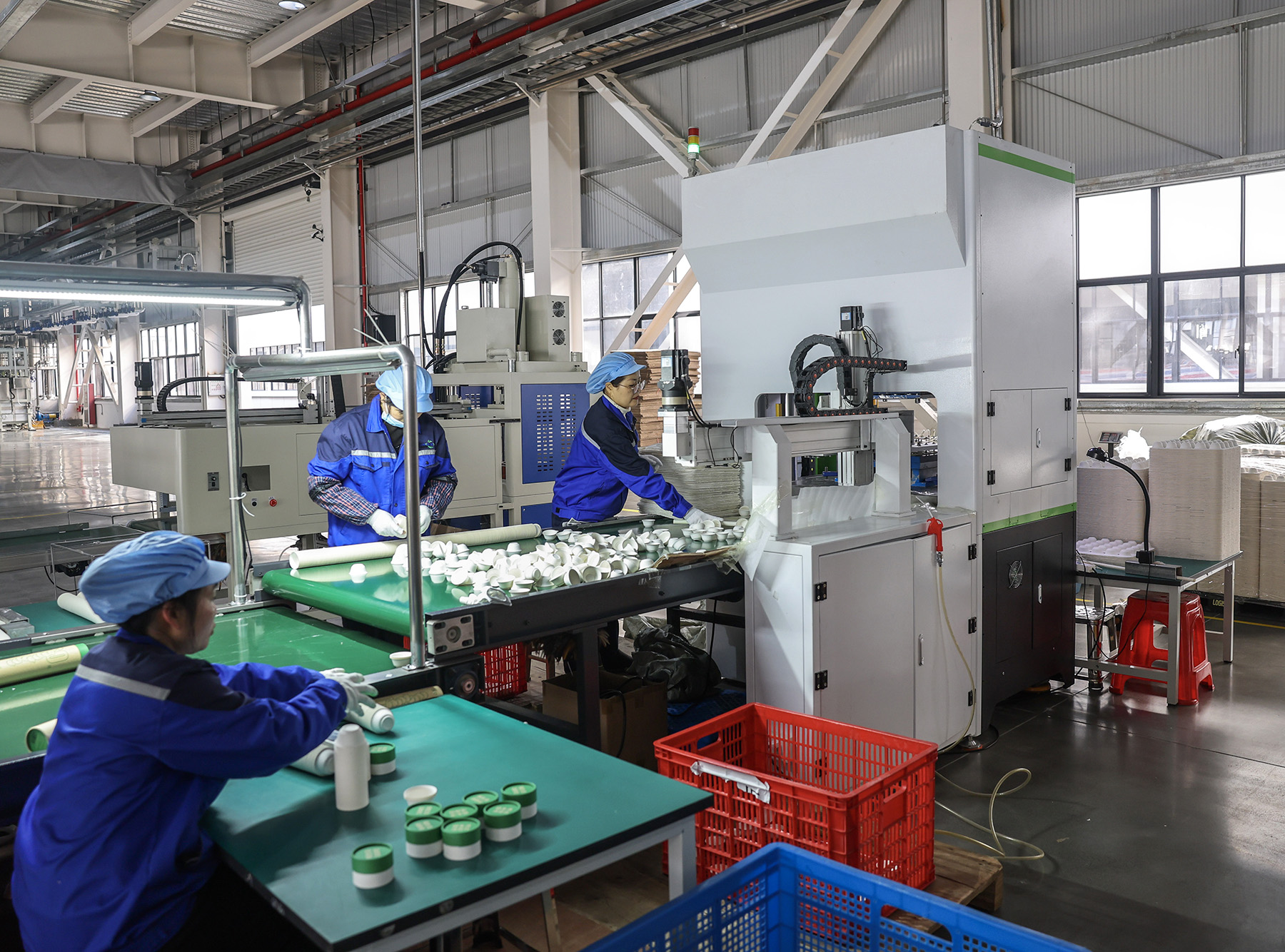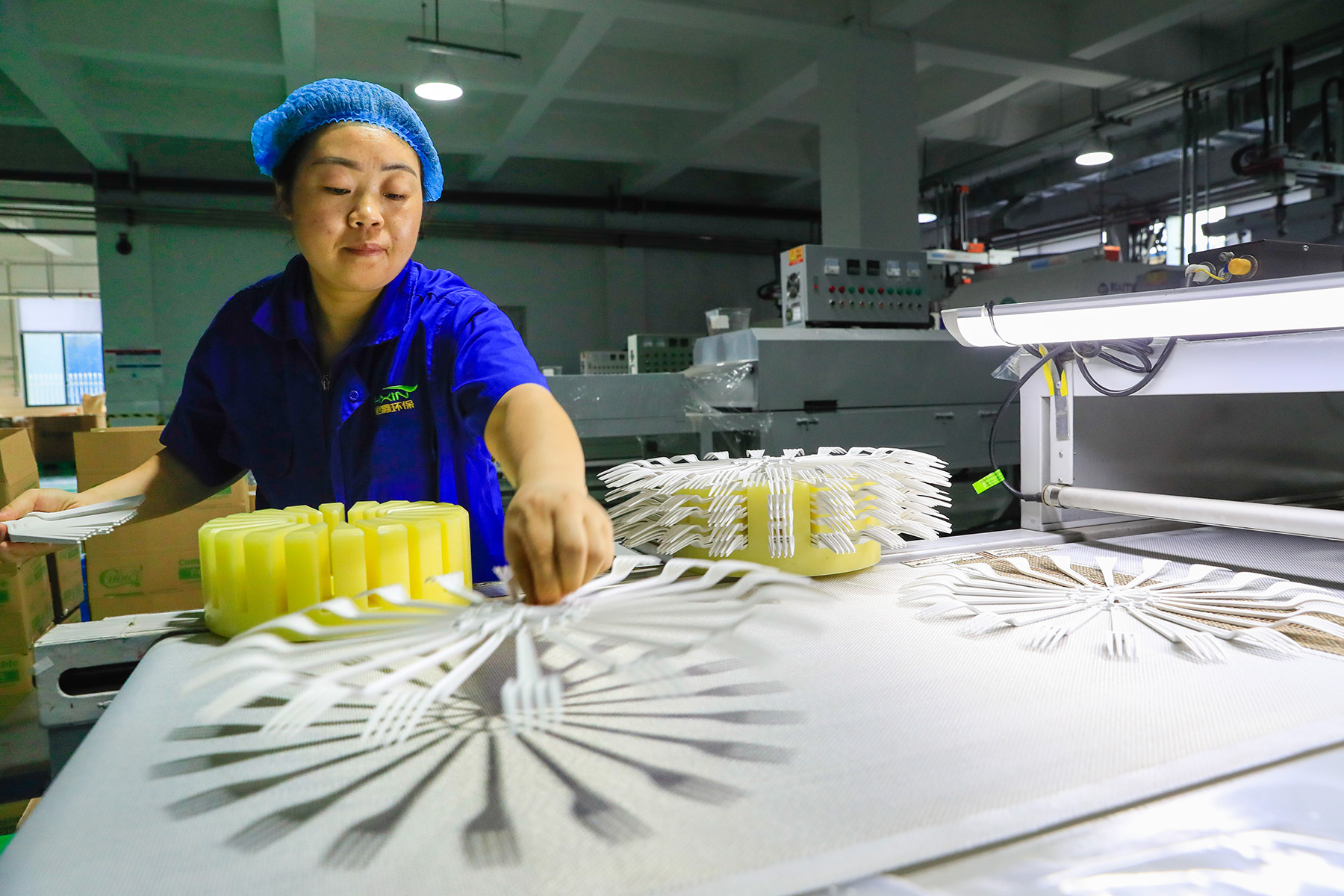Food delivery industry using innovative techniques to move in more environmentally friendly direction

Editor's note: As protection of the planet's flora, fauna and resources becomes increasingly important, China Daily is publishing a series of stories to illustrate the country's commitment to safeguarding the natural world.
At 10 pm on a Wednesday, Wu Xiu finally knocks off work and preorders his late dinner online to be delivered when he arrives at home later.
The 27-year-old programmer is one of many white-collar workers in Shanghai, and across many cities in China, that rely on online platforms for their daily meals.
Shortly after returning home, the doorbell rings heralding his hot meal for the evening — rice noodles.
Taking out his own set of stainless-steel chopsticks and a spoon from the drawer, Wu settles in with his iPad to eat while watching the costume detective drama, Not Detective Di Renjie.
READ MORE: China's fashion brands spotlight environmental awareness
Wu ensures that every time he orders he selects not to be given single-use cutlery. Despite this selection, disposable cutlery often comes along anyway to fill up his kitchen drawer.
China is the world's largest producer and consumer of single-use cutlery.
According to a report released by Gonyn.com, an industrial research institute, more than 120 billion sets of single-use cutlery were used and disposed of in China last year.

Despite growing environmental concerns and awareness about the impact and processing of single-use cutlery, its use in China has steadily risen over the past decade.
The problem exists on several fronts in the food delivery industry. Restaurants don't want to mistakenly not provide cutlery when it is required, fearing customer complaints. And customers often need to be encouraged to take action themselves.
As a result, food delivery platforms such as Eleme and Meituan have provided incentives for both customers and restaurants to reduce their use of single-use cutlery.
Eleme has teamed up with Alipay's popular Ant Forest Initiative to provide customers with a "green nudge", and prompt them to not select single-use cutlery on the platform in exchange for virtual "green energy" — points used in the Ant Forest Initiative that can contribute toward trees being planted in the real world.
Ant Forest won the 2019 Champions of the Earth award from the United Nations Environment Programme for its efforts in promoting greener lifestyles, by inspiring users to reduce carbon emissions in their daily lives and better protect the environment.
"I think my personal tableware is healthier, cleaner and more environmentally friendly anyway," said Wu, who actively participates in the Ant Forest Initiative.
He has planted 16 trees in areas of Gansu province, the Inner Mongolia autonomous region and the Ningxia Hui autonomous region, and ranks third in his friend circle.
The secret to Ant Forest's "green nudge" to prompt people into taking green steps has been its gamification — making the initiative addictive and competitive among users.

Environmental threats
The rapid expansion of the country's takeout market, driven by the development of online payment technology and express delivery services, has contributed to a rise in the use of disposable products and waste accumulation.
A set of single-use cutlery typically includes a plastic fork, a plastic spoon, a pair of wooden chopsticks and a napkin.
"China is the world's largest producer and consumer of disposable tableware. The extensive use of such items not only depletes substantial resources but also generates nonbiodegradable solid waste pollution," said Zhou Kang, an assistant professor at the School of Economics at Zhejiang University.
Zhou said manufacturing single-use cutlery uses substantial quantities of petroleum and wood, and transportation-related vehicle emissions have exacerbated greenhouse gas emissions.
He added that the environmental consequences of waste disposal are particularly severe. Yet, the compact size of tableware has posed challenges to recycling, leading to landfill and incineration becoming the primary disposal methods.
"Given that they are petroleum-based products, their decomposition will yield micro-plastics, which subsequently contaminates water, threatens wildlife and compromises people's health," Zhou said.
However, Meng Qingjun, deputy secretary-general of the China Plastics Processing Industry Association, said that although the public is aware of the environmental consequences, plastic is irreplaceable in today's society.
"Regardless of environmental concerns, plastic is hygienic, waterproof, oil-resistant, convenient and cost-effective. It's the most economical material. In certain fields, the use of plastics is the natural and exclusive choice," Meng said.
"The majority of single-use plastic tableware producers are small and micro-enterprises, prioritizing small profit margins and rapid turnover, which leaves them with little incentive or impetus to develop more environmentally friendly alternatives."

Concerted efforts
Back in the 1990s, the sight of vast quantities of disposable polystyrene boxes discarded next to train tracks raised awareness among the Chinese population about the severity of "white pollution", leading to the gradual implementation of measures to address plastic waste, Meng said.
In 2009, China outlined a national standard for biodegradable plastic tableware, mitigating the market confusion resulting from the indiscriminate promotion of nonbiodegradable plastic tableware.
In 2020, the Ministry of Commerce proposed a 30-percent reduction in the consumption of single-use cutlery in the food delivery industry in cities at or above the prefectural level by 2025.
It is unclear whether this target will be met.
The country's inaugural national standard for eco-friendly food delivery — the Green Takeout Management Criteria — was launched last year, allocating financial incentives for using safe materials and packaging, and encouraging restaurants to guide their customers to not use single-use cutlery.
Some restaurants have embraced their social responsibility in this matter by allowing customers to opt-out of having single-use cutlery supplied with their meals.
In 2017, Meituan unveiled its Blue Mountain Plan, marking the first-ever dedicated environmental initiative solely aimed at the food delivery industry in China. This involves the platform providing incentives for restaurants to improve their packaging so that they are more environmentally friendly.
In the same year, Eleme added the "no tableware" option to its checkout interface. It later upgraded it into a default option to cater to differing local regulations, some of which have already banned restaurants from using single-use cutlery unless explicitly requested.
Combined, these "green nudges" could have a considerable impact on environmental outcomes, according to a study in the journal Science published last year.
The study, conducted by a group of experts from the University of Hong Kong, Peking University, the Asian Development Bank and the Hong Kong University of Science and Technology, predicted that if such green nudges are implemented nationwide, they could save more than 21.75 billion sets of single-use cutlery annually, reduce 3.26 million metric tons of plastic waste and save 5.44 million trees, without affecting the revenue of restaurants and food delivery platforms.
Long-term solutions
"While these green nudges exert influence on people's consumption behaviors, the longevity of their influence is worth pondering," said Zhou from Zhejiang University, adding that constantly updated interference measures may be a solution to bring about widespread change.
Zhang Deyuan from the Chinese Academy of Macroeconomic Research, said, "A sustainable mechanism should be established to reduce the consumption of disposable tableware and improve end-of-life recycling."
ALSO READ: Low-carbon lives promote green agenda
This involves diversifying the means of green nudges to ensure continued adoption of environmentally friendly behaviors, reducing the use of composite materials in production to decrease the difficulty and costs of disposal, and setting up a dedicated recycling fund for takeout packaging to address the issue of limited economic efficiency in recycling, Zhang said.
"Collaborative endeavors from producers, restaurateurs, platforms and consumers are essential to tackling this issue, with the need for exploration and discovery of effective solutions still ahead," he said.


